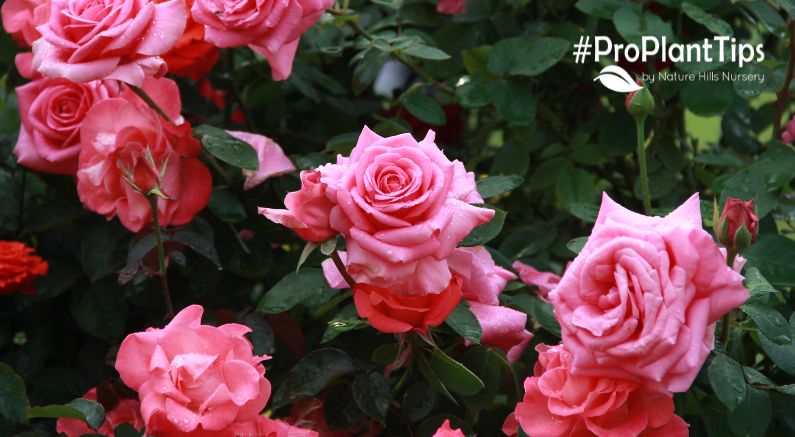Planting rose bushes in a garden is easy to do, and has many rewards as these beautiful plants bloom.
The first step to planting rose bushes is preparing the site. Roses prefer partial sunlight, and should be shaded from the hot afternoon sunlight. The site should have a slightly acidic soil content, and a heavy clay loam is ideal, but they will grow in nearly any soil condition.
The second step to planting rose bushes is to prepare the plant itself. Most rose bushes, when purchased, will be pruned prior to purchase. If not, it is best to cut back the stalks of bedding roses to about six inches, and the climbers to about eighteen inches. Planting rose bushes that have dried out can be detrimental to the health of the plant. Dried out plants should be moistened slightly before planting.
The third step to planting rose bushes is the actual planting. Planting rose bushes should usually be done in the autumn months, so the plants have time to develop before the hot summer months. The hole should be dug so that the root system will fit fully, and not be crowded. The roots should be laid out and soil applied carefully, ensuring that no damage is done to the roots. Soil should be pressed down firmly, removing any air pockets that might have developed. Transplanting rose bushes is a fairly straightforward process. It is very similar to the act of transplanting most other plants. Transplanting rose bushes should always be done in the autumn months, after the blooming period has ended. The first step is to dig around the plant and fairly deep. The underground root structure of a rose bush can sometimes get pretty large, and it is important not to damage any roots if possible. Once the plant is up, remove much of the soil from around the roots. This can be done using water or lightly shaking the roots. Once the soil has been removed, select a new location for the plant. There should be a good amount of direct sunlight each day, with shade from the higher temperatures of the afternoon sun, and also good drainage of water

Once the location has been selected, a hole must be dug for the plant. The hole should be large enough to house the entire root system freely, and not in a large clump. Spread out the roots and add soil a little bit at a time and press firmly to remove any air pockets and reinforce the support for the plant. The crown of the rose bush, where the roots come together, should be just an inch or so beneath the surface of the soil. Now, the plant must be watered gently, to ensure the roots are in contact with the soil. Transplanting rose bushes is often done for a variety of reasons. One reason is that the plant may not be thriving in its current location. This may be for several reasons, including not enough sun or soil drainage. Transplanting rose bushes that are not growing well to a location near a tree or shrub to act as a shield in the afternoon may increase the chances of growth greatly.

